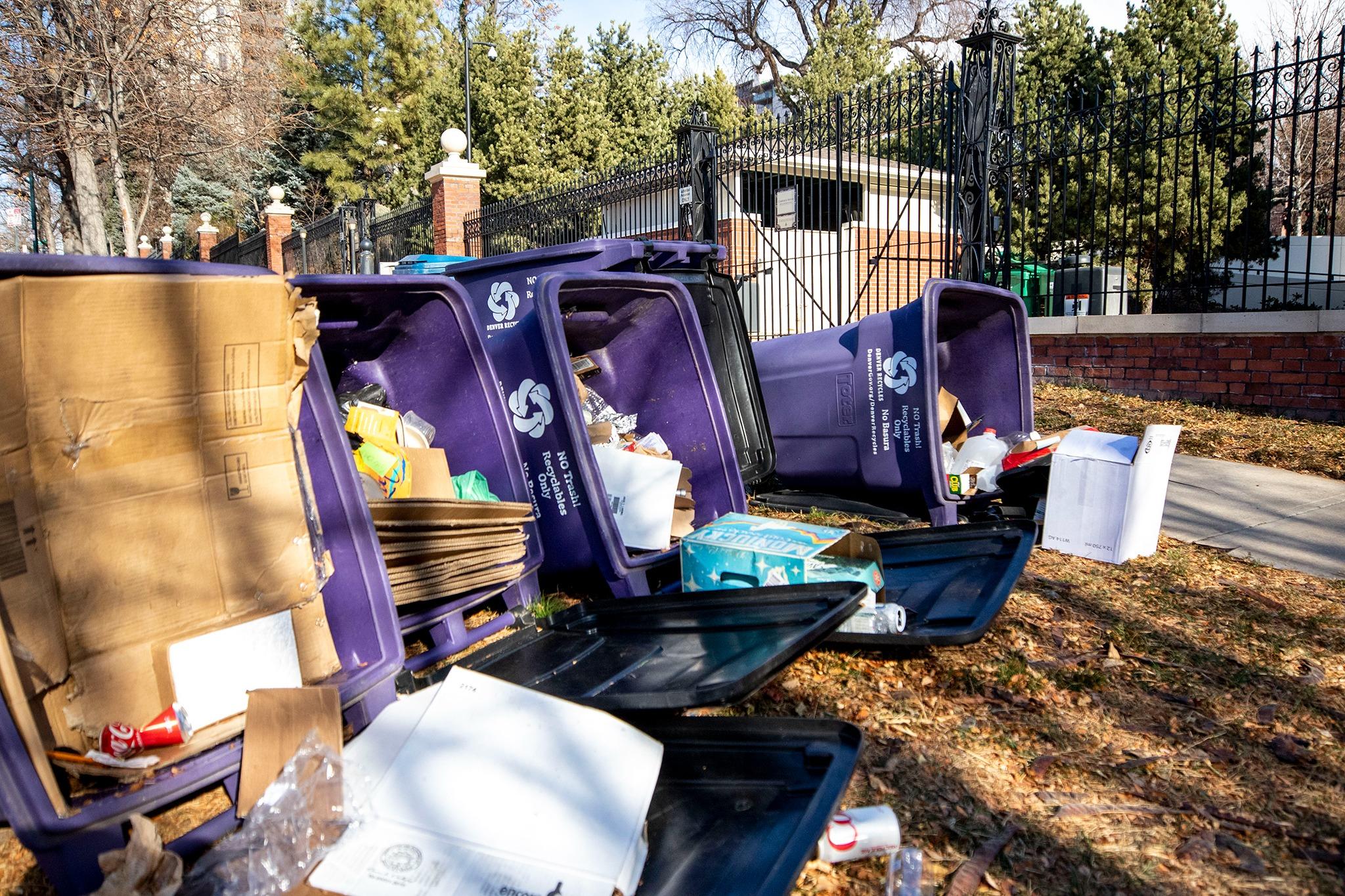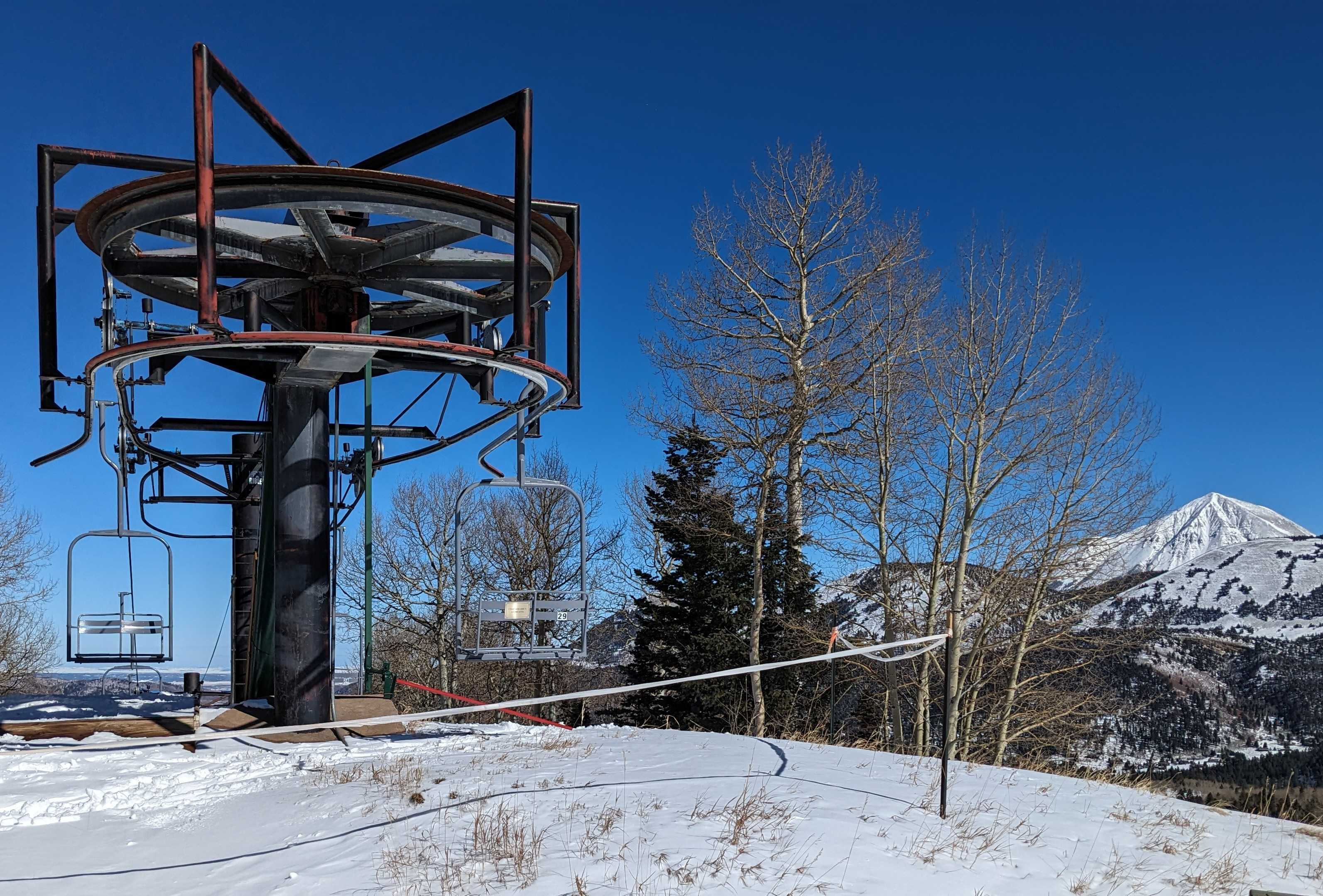
After more than a week of back and forth as ballots were finalized, Colorado Springs voters have passed Ballot Question 300 — with just over 54 percent of the vote — clearing the way for recreational marijuana sales in the city for the first time.
Two years ago, voters turned down a question to legalize recreational marijuana sales with 57 percent voting against it.
“Today is a win for Colorado Springs voters, who chose rec marijuana legalization over an outright ban,” Meghan Graf — a spokesperson for Citizens for Responsible Marijuana Regulation, the organization responsible for putting Ballot Issue 300 on the ballot — said in a statement. “This just puts it to rest.”
Colorado Springs currently limits medical marijuana shops from operating within 1,000 feet of schools and child care facilities. The newly approved ballot measure would function similarly by allowing existing medical marijuana shops to sell recreational marijuana as well.
The measure limits the number of recreational licenses to the existing number of medical marijuana licenses, meaning no new marijuana businesses would open. So should those existing businesses opt in to selling recreational marijuana, they would receive dual licenses to sell both medical and recreational.
It will also provide the revenue for a tax measure passed in 2022. Around the state, cities that have legalized recreational marijuana sales have directed tax income from sales to support a range of community initiatives. In Colorado Springs, that tax revenue will go towards public safety, mental health and veteran PTSD programs.
Legal Uncertainty Remains
The outcome resolves a peculiar legal dilemma that seemed on the horizon after it looked like voters had also approved Ballot Issue 2D — a measure which would have amended the city charter to ban retail marijuana businesses within Colorado Springs city limits.
On election night, Colorado Springs Mayor Yemi Mobolade told reporters at a GOP watch party at the Boot Barn Hall in Colorado Springs that if both the ballots passed it would, “present a really interesting legal dilemma for us.” Mayor Mobolade mentioned that he was “already in conversations with the city attorney” to “get some perspective” on the issue.
At that time, Mobolade said he believed that, if it passed, the restrictions in Ballot Measure 2D would take precedence over the permissions contained in 300. But that was no sure thing, and seemed likely headed to litigation.
But after all ballots were counted, the conundrum was avoided when Ballot Measure 2D failed, receiving just over 49 percent of the vote.
Still, the legal quandary for recreational marijuana in Colorado Springs doesn’t end here.
A few weeks before the ballot measures were sent to voters, in a 7-2 vote, the city council approved a zoning ordinance that would essentially ban any future recreational sales within city limits. The ordinance, brought forward by Councilwoman Crow-Iverson, bans recreational sales within a mile of schools, daycare facilities, and drug and alcohol treatment centers.
According to Councilwoman Crow-Iverson the 1-mile radius is “not scientific.” If the ordinance is allowed to stand, hardly any recreational stores would be able to open — supposedly. CPR News reached out to Councilwoman Crow-Iverson for comment on Ballot Measure 300 being approved by voters, and she did not respond.
It is still unclear whether Ballot Measure 300 would take precedence over the one mile zoning ordinance city council voted on to ban recreational marijuana sales within city limits. Proponents of the ordinance say it will.
“As we wait for the election results to be certified, we are closely reviewing the citizen-initiated ordinance and other pertinent City regulations,” Max D’Onofrio, lead communications specialist for Colorado Springs, said in a statement. “We do not have a timeline for when this review will be complete, and it would be inappropriate for the City to speculate on outcomes until this review is finished.”
The election results have not been certified yet — meaning the outcome is still unofficial — so the approval of the marijuana initiatives remains uncertain. Until certification, no official action can be taken to implement or enforce the measures.
According to Kristi Ridlen, a spokesperson for the El Paso county clerk’s office, the county will certify the results the week of Thanksgiving.
And if things stand as they are, Council Member Nancy Henjum would like to see the zoning ordinance reconsidered.
"Clearly the voters have determined that they would like recreational marijuana to be sold in stores," Henjum said. "And I don't think its appropriate for city council to go against voters, so I would like city council to reconsider the zoning ordinance. We need the tax revenue."
Voter Confusion
Many voters were thrown by the two competing measures on the ballot. And they say that's why it was such a close and confusing race — it wasn’t because they were torn on the issue, but rather because they were confused by the wording and existence of two competing ballot measures in the first place.
“With the newest pair of bills, I remember reviewing my ballot and I had to read both measures a couple of times to fully understand what I was seeing and try to understand why essentially two conflicting ballot measures were on the ballot in the first place,” said Chris Gardner, a lifelong resident of Colorado Springs.
Bradley Krieger, a medical marijuana user and Colorado Springs resident who has called the southern Colorado city home for the last 5 years, also echoed Gardner’s sentiments.
“I'm going to be a little more careful when I'm reading something, but I can definitely see how other voters might've found it confusing,” said Krieger. “It's a shame.”
And according to voter behavior analyst and professor at the University of Colorado Boulder, Anand Edward, this is not an uncommon experience for voters.
“We ask a lot of people on their ballots in Colorado, and we are asking them to wade through a whole lot of measures in some years — and this year was one of them,” Edward said. “And a whole lot of measures where the wording is complicated and it's not necessarily clear what the implications are going to be and how they could potentially conflict with one another. And so you're putting that on people to sort that out. I think that's asking an awful lot, and I don't think that means that people are bad citizens if they screw that up sometimes.”









